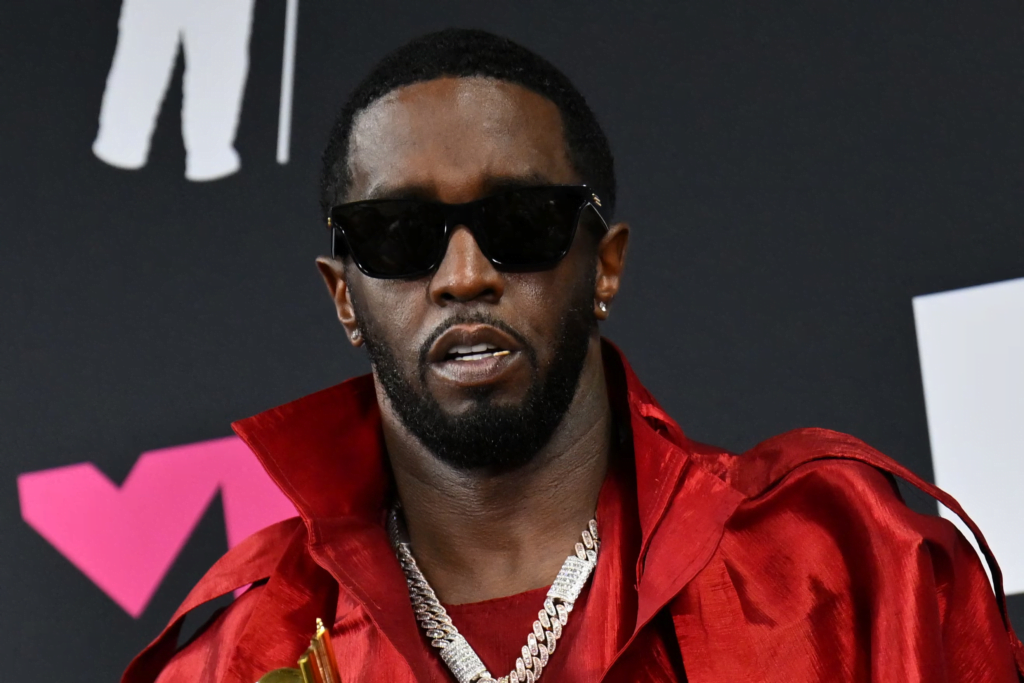
## Introduction
Sean “Diddy” Combs is one multifaceted figure whose imprint on the music industry and larger society via contributions to hip-hop culture, entrepreneurship, and philanthropy is unignorable. Touted as the pioneer of hip-hop and the billionaire behind long-celebrated business enterprises, Combs has equally been derided over his business practices and the very controversies that call into question what part he may have played in damaging youth culture. The following essay will delve into the two-sided legacy that is Diddy, chronicling his heights and the inevitable criticisms he draws.
## Influence on Hip-Hop Culture
One simply cannot deny the influence of Sean Combs on hip-hop culture, and that is what his legacy stands on. Defining a specific sound bordering hip-hop and R&B during the 1990s, Diddy did so much more than just please the ears of his listeners— he created a soundscape that defined an era. Basing his introduction to the world of innovative production techniques and immense talent, Diddy’s signees were, most notably, the legendary Notorious B.I.G. and stirring Faith Evans. These acts became legendary in their own right and would inspire music in both the rap and R&B genres today. Diddy, in merging genres, enabled music to shift paradigms and inspire legions of artists from different industries to create a more diverse and imaginative soundscape within hip-hop. More than just producing music, his vision extended into curating an identity tied closely with culture— one about style, confidence, and the good life that would put hip-hop squarely at the center of mainstream attention. This cultural shift has resonated through the years, as even today’s artists often cite Diddy as a major influence on their work. What he did was set the transformation of hip-hop into one of the major drivers and frontiers of music and he made acceptance on global stages which makes him one of the huge figures in music history.
## Business Acumen and Entrepreneurship
What has driven him to become this giant figure in showbiz is, to a more significant extent, the upshot of his business insight and entrepreneurial drive, rather than just the manifestation of his wealth and sway. It was, therefore, no surprise that he expanded the music brand successfully when he introduced a critically acclaimed fashion line that once again seemed to capture the sense of urban culture zeitgeist. This work put him into another industry as a major player and indicated the breadth of his business mind. The other concept is his input on the joint venture with Ciroc vodka. Should he have had just an eye for detail, he would not have thought beyond many years associated with a premium beverage brand so that it represents part of his product diversity matrix. It allowed him to target the luxury market by associative some lifestyle with a high-end product reflecting back to his acquired status as a mogul. It is his intuition in picking up trends and riding on them to manifest one of the richest personas in entertainment that has put before us an ideal example of entrepreneurship. Diddy proves that story is not only about music stardom but a manual on how to travel through the labyrinth of business and show that two extremes can meet and still do well.
## Philanthropy and Social Activism
Philanthropy and social activism have never fallen from Diddy’s identity, as he always lent his influence to bring change to the communities. The Sean Combs Foundation, which was set up by him, deals with issues of education and youth empowerment by addressing very important matters connected to underprivileged children. This is evident in his commitment to education through a number of initiatives that offer resources and opportunities for young people to succeed. In addition to that, Diddy has supported relief efforts following disasters and health initiatives; this proves that he is ready to use his wealth for the public good. He can speak out on social issues regarding justice and equality, having dialogues that question the injustices within systems. In this way, he deals with the responsibilities that come with celebrity status by talking with his voice, inspiring others to take action and play a part in making society better. His philanthropic efforts may be public relations, but their effect is so much more: Legacy of positive impact outside the music industry & a real message of giving back to community.
## Criticism of Business Practices
For all his numerous successes, Diddy has drawn immense flak on his way of doing business. While it questions how ethical his ventures are, critics mainly cast doubt upon the entire moral issue surrounding them. Critics argue that he mostly tends to exploit artists under his label—major emphasis on profit margins at the expense of fair compensation. There were even allegations that suggested many artists under his label did not get fair royalties or support, leading to some former collaborators turning against him. Second, Diddy’s embrace of consumerism in fostering hip-hop culture has earned him charges of elevating the phony above the real. Many believe that his emphasis on financial success and endorsements takes away the authenticity from music, which actually underpins the whole idea of hip-hop. Furthermore, questions abound regarding the sustainability of his business endeavors; some of his ventures are seen to ride on passing fads rather than permanent value, that could seriously taint the music industry for long. This dichotomy questioning artistic integrity vis-a-vis commercial success raises very pertinent issues on how Diddy’s business comportments could shape the destiny of hip-hop culture.
## Controversies and Public Image
Diddy’s public image has been marred by several controversies and legal issues that complicate his legacy. Diddy’s past brushes with law enforcement and violence have had the media paint them in such a way that they overshadow his achievements. Critics have used his controversial relationships with artists and collaborators to claim that he generally places his personal gains over real partnerships. These very criticisms underline a pattern of behavior some believe to undermine the very community he purports to uplift. Diddy has also been charged with projecting a lifestyle centered on excess and materialism, which critics feel could be irresponsible or even injurious to the young by setting unrealistic standards of what is achievable. What he stands for in an opulent way of life can easily skew the perceptions of achievement among the youth, shifting from hard work and talent to wealth and fame. This raises concern on the messages shared for impressionable audiences and glorification’s possible consequences.
## Impact on Celebrity Culture
A pop cult figure, in Diddy all the excesses and superficialities that entail criticism of contemporary society are personified. Indeed, his lifestyle—lush, wealthy and replete with high-profile relationships—could set an unrealistic standard for hopeful youngsters wanting to someday make that quantum leap into prominence. Critics, going further, have held that such emphasis on wealth and fame trivializes the value on artistic integrity and communal values, making once a community whose cultural focus is all but obsessed on image over substance. Indeed, such a celebrity lifestyle reeks of material consumptionism and could engender vices like irresponsibility when there is a plethora of otherwise more meaningful aspects of life to focus on personal growth and social responsibility. The questionability surrounding Diddy’s influence regarded the promotion of such a narrow idea of success, tied greatly to material richness, isn’t healthy for a human society to follow. Such a limited perspective may estrange the richness of nar-ratives and variety of experiences that hip-hop extends, thereby po-tentially keeping this genre from growing in its influence on culture. In the end, while Diddy’s musical and business contributions are huge, his status in redefining the culture of celebrity calls for some criti-cal questioning of just what values are being venerated and emu-lated.
## Conclusion
A study in duality, Sean “Diddy” Combs wields a brand upon the hip-hop culture, business, and philanthropy worlds that is simultaneously forceful and multifaceted. His pioneering music and entrepreneurial achievements have vaulted him to legitimate star status within the music industry; his philanthropic work just as loudly proclaims him extremely seriously committed to the voluntary sector. Yet, the criticisms regarding his business practices, controversies, and the consequences of his celebrity lifestyle suggest a legacy that is somewhat more ambivalent. In closing, Diddy epitomizes the duality of contemporary renown, which elucidates the interplay that influence and responsibility, achievement and spotlight, has upon the morphing of the music industry and social mores at large. Therefore, when contemplating his career, it is vital that soul-searching thought be given to his actions and the effect they will have upon generations to come in the ongoing attempt to underwrite an enriched and more accurate narrative in hip-hop and indeed beyond.



